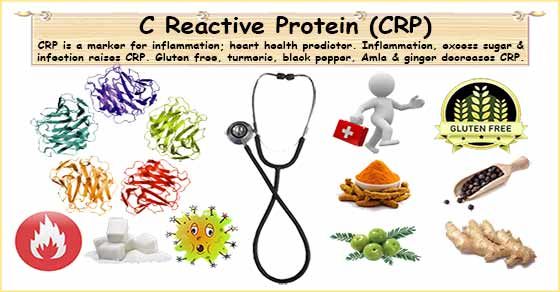C-Reactive Protein Test: Purpose, Procedure, and Results
A c-reactive protein (CRP) test determines the amount of c-reactive protein (CRP) in a blood sample. CRP is a protein generated by your liver. Usually, your blood contains modest quantities of c-reactive protein. If your body is inflamed, your liver releases more CRP into your bloodstream. High CRP levels may indicate a significant health issue that causes inflammation. Below is everything to know about CRP test from procedure to CRP test cost in Hyderabad and understanding the results.
Inflammation is your body’s way of defending and healing tissues after an injury, illness, or another disease. Inflammation can be both acute (rapid) and temporary. In most cases, this form of inflammation is beneficial. If you cut your skin, for example, it may turn red, swell, and pain for a few days. These are indications of inflammation. Internal inflammation can also occur. CRP levels in your blood are generally low. Moderate to severe elevations may indicate a significant infection or another inflammatory disease.
Purpose
A C-reaction protein test may be ordered if your doctor suspects you have an inflammatory illness (such as arthritis, cancer, or an infection). This test can detect high levels of inflammation but does not reveal where the inflammation is or what is causing it. If you have a previously diagnosed inflammatory condition, your doctor may prescribe this test to assess how your treatment works and if the problem is being controlled effectively.
It’s crucial to understand that a high-sensitivity C-reactive protein (hs-CRP) test is not the same as a standard C-reaction protein test. This test is commonly used to predict cardiology disease and stroke.
Doctors commonly order C-reactive protein (CRP) tests to assist diagnose or rule out specific illnesses, such as:
- Fungal infections.
- Some forms of arthritis.
- Pelvic inflammatory disease (PID).
- Inflammatory bowel disease (IBD).
- Osteomyelitis (infection of your bone).
- Severe bacterial infections, such as sepsis.
- Autoimmune diseases.
While the standard C-reactive protein test can assist in identifying several disorders that cause inflammation by measuring high amounts of protein, the hs-CRP test measures lower (but still increased) protein levels, indicating the risk of heart disease and stroke. If your doctor is concerned about cardiovascular concerns, they may request a hs-CRP test.
Preparation
Some medicines may affect your outcomes. As a result, inform your provider about any vitamins or medications you use, such as ibuprofen, aspirin, and other nonsteroidal anti-inflammatory drugs (NSAIDS). Do not stop taking your prescriptions without first checking with your doctor.
This test requires no extra preparation. You can eat regularly on the test day, which can occur anytime. Because this test requires a blood sample, a tiny needle will be used.
Procedure
A nurse or other healthcare practitioner will take blood from a vein in your arm. First, they use antiseptic to clean the skin over the vein. They then place an elastic band around your arm, causing your veins to swell significantly. The healthcare expert inserts a little needle into the vein, and your blood is collected in a sterile bottle.
After collecting your blood sample, the healthcare professional will remove the elastic band around your arm and instruct you to apply gauze pressure to the puncture site. They use a bandage to secure the gauze. Having a blood test poses relatively little risk. Most discomfort will pass soon, though there might be some pain or bruising where the needle was injected.
Understanding the Results
The results of the CRP test can either be given in milligrams per liter (mg/L) or milligrams per deciliter (mg/dL). A physician might start to hone in on the most likely causes of an illness based on your CRP levels. The following CRP data can be used to analyze some of the most likely reasons:
Less than six mg/L (0.3 mg/dL): The usual range of CPR.
0.3 to 1.0 mg/dL (3 to 10 mg/L): inflammation that is mild to moderate (People with this CRP range are usually smokers, obese, pregnant, or suffering from conditions like diabetes)
1.0 to 10 mg/dL (10 to 100 mg/L): inflammation throughout the body brought on by an autoimmune condition, bronchitis, pancreatitis, a heart attack, cancer, or another illness
10 mg/dL (Over 100 mg/L) (An overall inflammatory condition brought on by acute bacterial infections, viral infections, systemic vasculitis, or significant trauma, among other conditions.
50 mg/dL (Over 500 mg/L): severe bacterial infections are the most common cause of widespread, painful inflammation.
What is the CRP Test Cost in Hyderabad?
The CRP test price in Hyderabad is around INR 500. You can opt for the finest diagnostic services from the best diagnostic center in Hyderabad.
The Final Word
A blood test called a CRP test is used to gauge overall inflammation in the body. It accomplishes this by looking for a molecule called C-reactive protein, which the liver produces in reaction to inflammation. Blood must only be drawn quickly for the CRP test. The test can identify potential complication reasons, but it cannot explain why or where inflammation occurs, such as an infection, pancreatitis, an autoimmune condition, or cancer. A variant of this test used to gauge the likelihood of a heart attack or stroke is high-sensitivity CRP.
Lab tests can cause stress whenever the findings are abnormal. It’s crucial to remember that numerous factors, some significant and others not, might result in high CRP levels when taking the test. In the end, a conversation with your physician would clear any queries or doubts.
Share this content:














Post Comment